Best fiction of 2022
Dazzling invention from Jennifer Egan, a state-of-the nation tale from Jonathan Coe and impressive debut novels and short stories are among this year’s highlights
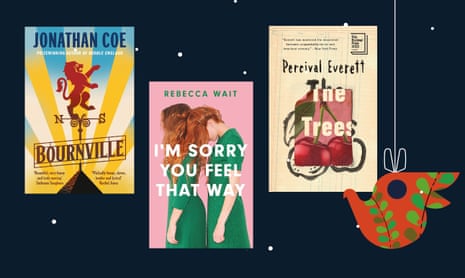
Some of the year’s biggest books were the most divisive. In her follow-up to A Little Life, To Paradise (Picador), Hanya Yanagihara split the critics with an epic if inconclusive saga of privilege and suffering in three alternative Americas: a genderqueered late 19th century, the Aids-blasted 1980s, and a totalitarian future degraded by waves of pandemics. I was impressed by its vast canvas and portrayal of individual psychic damage set against seismic historical change.
There were mixed reactions, too, to Cormac McCarthy’s jet-black brace of novels The Passenger and Stella Maris (Picador), his first in 16 years; and to Ian McEwan’s Lessons (Cape), seen as both baggily self-indulgent and richly humane. Setting the protagonist’s life against the arc of postwar politics from the cold war to Brexit, and grappling with issues from the nature of creativity to the legacy of sexual abuse, it can be read as an indictment of the boomer generation who “ate all the cream”.
Also asking how we got here is Bournville by Jonathan Coe (Viking). With his third novel in four years, Coe is on a roll; he tracks the fortunes of a family through snapshots of communal experiences, from the Queen’s coronation through the 1966 World Cup to pandemic lockdown, in a moving, compassionate portrait of individual and national change.
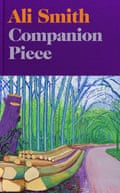
Ali Smith’s response to lockdown was typically playful and profound; Companion Piece (Hamish Hamilton) sees the outside world impinge on one woman’s careful isolation, in a novel about the importance of making connections between words, eras and people. Jennifer Egan’s The Candy House (Corsair), meanwhile, harnesses a near-future technological advance – the ability to upload and share memories – to reflect on current concerns around surveillance and privacy with dazzling inventiveness. Mohsin Hamid’s fable The Last White Man (Hamish Hamilton) interrogates race, community and the meaning of the other in a society where skin colour is changing. And I loved Joy Williams’s menacing and madcap Harrow (Tuskar Rock), set in a surreal future of environmental breakdown and human exhaustion, a kind of Alice in Wonderland of the apocalypse.
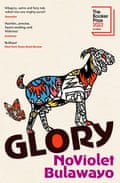
Radical invention characterises Percival Everett’s devastatingly absurdist The Trees (Influx): focusing on a string of gruesome murders in Mississippi, it weaponises the genres of horror, comedy and detective fiction to lay open the history of lynching. In her rambunctious satire of Robert Mugabe’s fall, Glory (Chatto), NoViolet Bulawayo braids the allegory of Animal Farm with an oral storytelling tradition and a social media chorus decrying dictatorship and repression around the world. Selby Wynn Schwartz’s After Sappho (Galley Beggar) is another novel that plays with form, reclaiming hidden lesbian stories by tumbling together biography, scholarship and poetic flights of fancy in sketches of modernist artists and writers from Virginia Woolf to Colette and Josephine Baker. This one-of-a-kind book channels a spirit of righteous anger as well as lyrical freedom and joy.
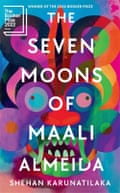
Other standout novels illuminating the past include Louise Kennedy’s Trespasses (Bloomsbury), set in Northern Ireland during the 70s. Based around a dangerous affair between a young Catholic woman and an older Protestant man, it combines gorgeously direct and acute prose with an incisive eye for social detail. Shehan Karunatilaka won the Booker prize with The Seven Moons of Maali Almeida (Sort Of), a blistering murder-mystery-cum-ghost-story set amid the carnage of Sri Lanka’s civil war that similarly focuses on the effort to preserve ordinary life in the face of sectarian violence. Catherine Chidgey’s Remote Sympathy (Europa) is an excellent investigation of communal guilt and obliviousness to Nazi atrocities, while in Trust (Picador) Hernan Diaz deconstructs capitalist excess and the illusion of money through different perspectives on the story of a New York financier. Maggie O’Farrell’s follow-up to Hamnet, The Marriage Portrait (Tinder), is a glittering Renaissance fable of a girl caught up in Italian aristocratic intrigue, and Kate Atkinson is on deliciously acerbic form in Shrines of Gaiety (Doubleday), exposing the underbelly of London nightlife in the roaring 20s. Georgi Gospodinov’s Time Shelter (W&N, translated from Bulgarian by Angela Rodel), in which a “clinic for the past” treats Alzheimer’s patients, plays with ideas of history and nostalgia to explore Europe’s 20th century and current confusion with wit and warmth.
It was a good year for unhappy families. Charlotte Mendelson skewers narcissistic control in The Exhibitionist (Mantle), a darkly witty portrait of an artist on the slide who has spent decades squashing the life and creative energies out of his wife and children. Rebecca Wait’s I’m Sorry You Feel That Way (Riverrun) is a very funny, emotionally wise story of sibling rivalry and difficult mothers. There are no laughs, however, in Sarah Manguso’s chilling Very Cold People (Picador), an uncomfortable, deeply impressive account of how silence, snobbery and repression in a New England town allow the poison of abuse to trickle down the decades.
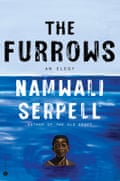
Ross Raisin has quietly become one of Britain’s most interesting novelists: A Hunger (Cape) explores the conflict between ambition and duty as a chef takes on a caring role when her husband develops dementia. Namwali Serpell’s second novel, The Furrows (Hogarth), brilliantly dramatises the psychic dislocations of grief over a lifetime through the story of a woman haunted by the memory of her younger brother, who died under her care in childhood. Douglas Stuart followed Booker winner Shuggie Bain with a tough and tender story of family dysfunction and first love in Young Mungo (Picador). And in Amy & Lan (Chatto), set on a ramshackle farm commune, Sadie Jones gives us a wonderfully achieved child’s-eye view of messy family interactions and the up-close life-and-death drama of the natural world.
Three hard-hitting debut novels shone out. An Olive Grove in Ends by Moses McKenzie (Wildfire) portrays a young Black man’s struggle to define what success might look like in a Bristol neighbourhood in the grip of gentrification. The book delves deep into faith, violence, addiction, ambition and love with power and grace. Jon Ransom’s The Whale Tattoo (Muswell), focusing on a gay working-class man in watery rural Norfolk, is lyrical, atmospheric and brutal by turns. And Sheena Patel’s I’m a Fan (Rough Trade Books) punctures the bubbles of social media in a fierce tale of obsession and power dynamics.
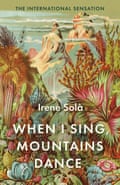
Set in the Pyrenees and giving voice to everything from mountains to storms, mushrooms to dogs, English-language debut When I Sing, Mountains Dance by Irene Solà (Granta, translated from Catalan by Mara Faye Lethem) is a playful, polyphonic triumph. Closer to home, poet Clare Pollard’s fiction debut, Delphi (Penguin), is an ingenious response to Covid, combining ancient Greek prophecy with the daily frustrations of lockdown to face up to our fears for the future. Vladimir by Julia May Jonas (Picador), a provocative post-MeToo morality tale about a female professor’s crush on a younger man, is sharp and deliciously readable; as is the huge hit Lessons in Chemistry by Bonnie Garmus (Doubleday), which brings bite as well as charm to the tale of a super-rational scientist navigating sexism in early 60s America.
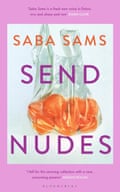
Three notable debut short-story collections introduced fresh, contemporary new voices. Saba Sams’s unsettling, full-throated Send Nudes (Bloomsbury) captures girls and young women on the brink of change; Jem Calder’s Reward System (Faber) smartly anatomises contemporary life in the relentless glare of the smartphone; and Gurnaik Johal’s We Move (Serpent’s Tail) delicately traces relationships and disconnections across a British-Punjabi community. Short-story virtuoso George Saunders returned to the form with Liberation Day (Bloomsbury), tragicomic allegories of try-hard regular folk caught up in hells beyond their understanding.
Emmanuel Carrère continues to spin his fascinating web of social observation and self-inquiry in Yoga (Cape, translated from French by John Lambert), charting personal and psychic upheaval in the wake of the Charlie Hebdo terrorist attack. Yiyun Li’s richly mysterious The Book of Goose (4th Estate) marks a departure from her recent autofiction; but this tale of a passionate friendship between two young peasant girls in postwar France, and how they parse their shared will to create and to act upon the world, seems to hold many layers of truth about art, love and self-creation. Lastly, a small miracle from another genre-hopper: in Marigold and Rose (Carcanet), Nobel-winning poet Louise Glück presents the first year in the life of twin baby girls with formal and philosophical sleight of hand. This wry, read-in-a-sitting delight channels the myriad possibilities of fiction with a huge sense of fun.


No comments:
Post a Comment